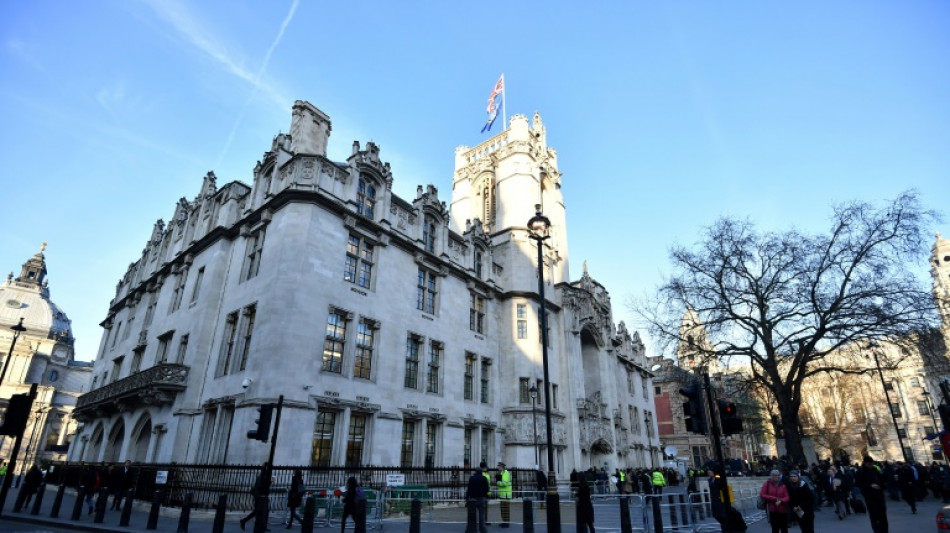
-
 Troubled Red Bull search for path back to fast lane
Troubled Red Bull search for path back to fast lane
-
China's forecast-beating growth belies storm clouds ahead: analysts

-
 ASML CEO sees growing economic 'uncertainty' from tariffs
ASML CEO sees growing economic 'uncertainty' from tariffs
-
Heineken beer sales dip, tariffs add to uncertainty
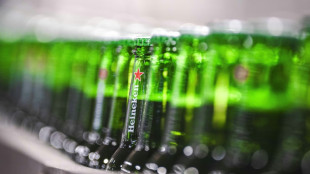
-
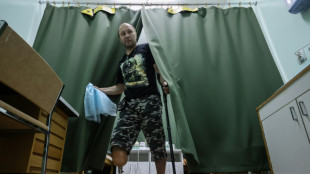 Rehab centre for Russian veterans from Ukraine fills up
Rehab centre for Russian veterans from Ukraine fills up
-
Dutch flower industry grasps thorny pesticide issue

-
 Solar boom counters power shortages in Niger
Solar boom counters power shortages in Niger
-
Malnourished children in Afghanistan at 'high risk of dying' without US aid

-
 Skating comeback queen Liu says she can get even better for Olympics
Skating comeback queen Liu says she can get even better for Olympics
-
'Let's rock': world music icon Youssou N'Dour back on the road

-
 Mackerel and missiles: EU-UK defence deal snags on fish
Mackerel and missiles: EU-UK defence deal snags on fish
-
Istanbul's Hagia Sophia prepares for next big quake

-
 'Magician' Chahal casts spell with IPL heroics
'Magician' Chahal casts spell with IPL heroics
-
WHO countries strike landmark agreement on tackling future pandemics

-
 Kerr salutes Harvard defiance over Trump after Warriors win
Kerr salutes Harvard defiance over Trump after Warriors win
-
Canada party leaders hold high-stakes debate two weeks from vote

-
 As war grinds on, Ukraine's seniors suffer
As war grinds on, Ukraine's seniors suffer
-
ASML CEO sees 'increased macro uncertainty' from tariffs

-
 Pope leaves faithful guessing over Easter appearances
Pope leaves faithful guessing over Easter appearances
-
Butler, 'Batman' Curry shine as Warriors down Grizzlies to reach playoffs

-
 Skating 'Quad God' Malinin ready for Olympic favourite tag
Skating 'Quad God' Malinin ready for Olympic favourite tag
-
Toppmoeller has ascendant Frankfurt challenging their limits

-
 Cambodia's Chinese casino city bets big on Beijing
Cambodia's Chinese casino city bets big on Beijing
-
Vespa love affair: Indonesians turn vintage scooters electric

-
 Europe seeks to break its US tech addiction
Europe seeks to break its US tech addiction
-
Long-abandoned Welsh mine revived as gold prices soar
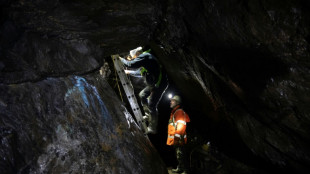
-
 UK's top court to rule on how to define a 'woman'
UK's top court to rule on how to define a 'woman'
-
WHO countries reach landmark agreement on tackling future pandemics

-
 Stocks struggle again as Nvidia chip curb warning pops calm
Stocks struggle again as Nvidia chip curb warning pops calm
-
China's economy beats forecasts ahead of Trump's 'Liberation Day'

-
 China's economy beat forecasts in first quarter ahead of Trump's 'Liberation Day'
China's economy beat forecasts in first quarter ahead of Trump's 'Liberation Day'
-
Trump orders critical minerals probe that may bring new tariffs

-
 Onana faces date with destiny as Man Utd chase Lyon win
Onana faces date with destiny as Man Utd chase Lyon win
-
Lessons in horror with Cambodia's Khmer Rouge tribunal

-
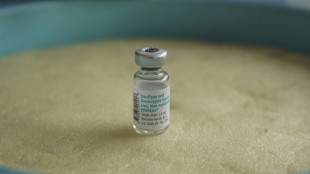 Pandemic agreement: key points
Pandemic agreement: key points
-
Paramilitaries declare rival government as Sudan war hits two-year mark

-
 Landmark agreement reached at WHO over tackling future pandemics
Landmark agreement reached at WHO over tackling future pandemics
-
'La bolita,' Cuban lottery offering hope in tough times

-
 'Toxic beauty': Rise of 'looksmaxxing' influencers
'Toxic beauty': Rise of 'looksmaxxing' influencers
-
Facebook added 'value' to Instagram, Zuckerberg tells antitrust trial

-
 Beyond Creatinine: First Real-World Evidence Highlights Proenkephalin A 119–159 (penKid) as a Valuable Kidney Function Biomarker
Beyond Creatinine: First Real-World Evidence Highlights Proenkephalin A 119–159 (penKid) as a Valuable Kidney Function Biomarker
-
Helium One Global Ltd Announces Jackson-27 Spud at Galactica Project

-
 Tocvan Core Drilling Extends Main Zone, 70 meters South Returns 7.2 g/t Gold and 80 g/t Silver Over 2.6 meters within 46.9 meters of 0.5 g/t Gold
Tocvan Core Drilling Extends Main Zone, 70 meters South Returns 7.2 g/t Gold and 80 g/t Silver Over 2.6 meters within 46.9 meters of 0.5 g/t Gold
-
Supplement Manufacturing Partner, Inc. Issues Recall on Dorado Nutrition Brand Spermidine Supplement 10mg Vegetable Capsules (Spermidine 3HCL) Due To Undeclared Wheat Allergen

-
 Trump signs order aimed at lowering drug prices
Trump signs order aimed at lowering drug prices
-
Paramilitaries declare rival government as Sudan war enters third year

-
 Nvidia expects $5.5 bn hit as US targets chips sent to China
Nvidia expects $5.5 bn hit as US targets chips sent to China
-
Emery targets 'next step' for Aston Villa after Champions League heroics

-
 'Gap too big' for Dortmund after first leg, says Guirassy
'Gap too big' for Dortmund after first leg, says Guirassy
-
Maradona's daughter says doctors could have prevented his death


UK's top court to rule on how to define a 'woman'
Britain's highest court will hand down a landmark ruling Wednesday on the definition of a "woman", weighing in on a long-running, divisive debate about biological sex versus gender identity.
The Supreme Court ruling could have widespread implications for sex-based rights across the UK -- including access to single-sex spaces for transgender women.
The judges will have the last say in a years-long legal battle between the Scottish government and campaign group "For Women Scotland" (FWS), which believes that only those born female should be legally protected as "women".
If the court rules in favour of the gender critical campaigners, LGBTQ+ activists fear trans women will no longer be able to access certain facilities like women's shelters.
At the heart of the debate is the interpretation of the Equality Act 2010, which protects characteristics including sex, gender and gender reassignment against discrimination, and defines a woman as a "female of any age".
According to the Scottish government, anyone who has transitioned to female and has a Gender Recognition Certificate (GRC), is considered a woman under the Equality Act as well.
However, for FWS campaigners -- who believe biological sex at birth is immutable and trumps gender identity -- the act does not afford trans women all the protections reserved for those born female.
Supreme Court judges will issue a ruling at around 10:00 am (0900 GMT), which will decide whether someone who has transitioned to female and has a GRC is considered and protected as a woman under the Equality Act.
- 'Enjoy protections' -
FWS brought the appeal to the Supreme Court in November, after first launching a legal challenge against 2018 Scottish legislation aimed at hiring more women in public sector bodies.
That law considered women to include trans women with a GRC under the 2004 Gender Recognition Act.
Under that act, a GRC allows trans people to legally change their gender to identify as a man or a woman.
FWS unsuccessfully challenged Edinburgh's definition, with a Scottish judicial review concluding in 2022 that sex was "not limited to biological or birth sex".
A lawyer representing the Scottish government told the Supreme Court in November that a person who becomes a woman "in consequence of a GRC" is entitled to the same rights "just as much as others enjoy those protections who are recorded as a woman at birth".
Comparing a GRC to adoption, senior lawyer Ruth Crawford argued that the certificate is "no more a legal fiction than adoption".
Aidan O'Neill, representing FWS in the appeal, asked the court to take account of "the facts of biological reality rather than the fantasies of legal fiction".
O'Neill added that the Scottish ministers' approach would lead to "absurd and unjust consequences".
According to Crawford, just under 8,500 people in the UK had obtained a GRC for sex change since the 2004 act -- an average of 420 people a year.
- Clarity? -
The awaited Supreme Court ruling will likely stir strong reactions from either end of a highly-charged debate which has pitted gender critical and trans rights activists against each other.
"Harry Potter" author J. K. Rowling, who lives in Scotland, has become a figurehead of the gender critical side, and subject to both online hate and accusations of transphobia.
However, the verdict could also provide much-needed clarity on trans rights and the gender change process in Britain -- amid an attack on transgender people and so-called "gender ideology" in the United States under President Donald Trump.
Since retaking office, Trump has declared the federal government would recognise only two sexes, male and female, sought to bar trans athletes from women's sports and curbed treatments for trans children.
While trans rights became politicised in the UK under the previous Conservative administration, which blocked Scottish legislation to make gender change easier in 2022, they have taken a back seat since a Labour government came into power last year.
Labour had initially promised to simplify the gender identification process in its election manifesto in order to remove "indignities".
However, the reforms were left off the government's legislative agenda, and sources cited by British media earlier this year said such changes were not a priority for this administration.
T.Ward--AMWN